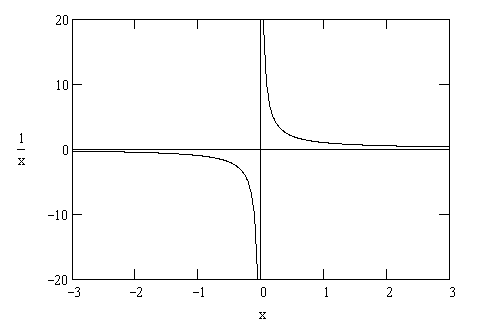| Have you found an error or do you want to add more
information to these pages? You can contact me at the bottom of the home page. |
| Algebraically, when | a | = c then a = bc |
| b |
| For | 1 | = x, there is no value for x where 1 = 0 × x because multiplying by zero gives 0 as a result. |
| 0 |
| If | 1 | = ∞ then |
| 0 |
| If | 5 | = ∞ then 5 = 0 × ∞ |
| 0 |

| Have you found an error or do you want to add more
information to these pages? You can contact me at the bottom of the home page. |